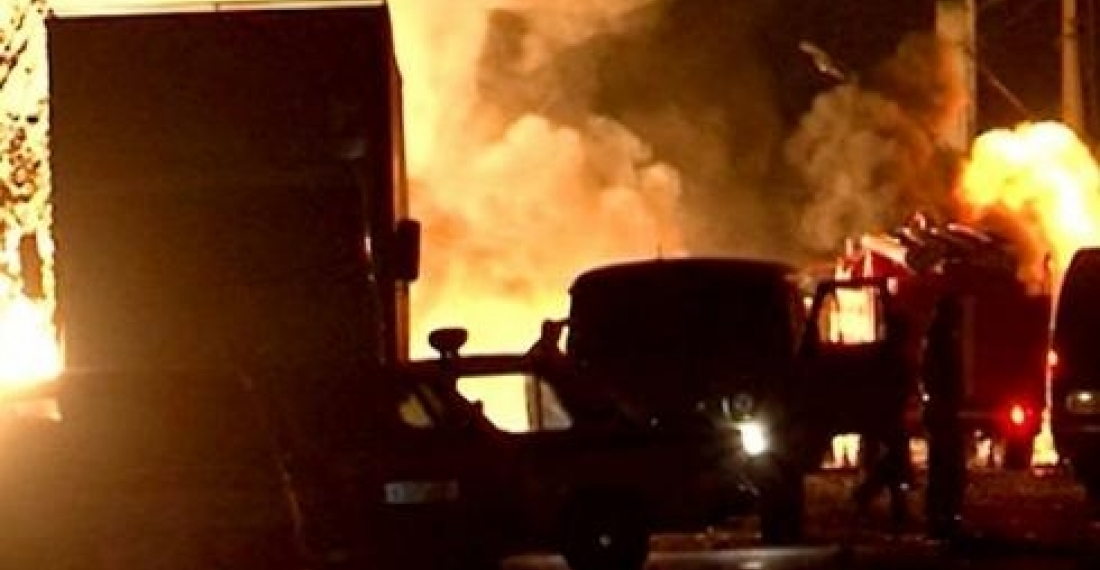Президент северокавказской республики Дагестан вернулся обратно в столицу Махачкалу, прервав визит в Москву, для того, чтобы на месте разобраться с последствиями двух взрывов, после которых погибли тринадцать человек и более ста получили ранения.
Среди тринадцати погибших семь полицейских, двое пожарных и двое местных жителей. 83 человека были госпитализированы, а 26 на месте была оказана медицинская помощь.
По предварительным данным, террорист-смертник погиб, когда он взорвал свой автомобиль после того, как был остановлен для проверки на полицейском посту на окраине города.
"Как установили эксперты-взрывотехники, в легковом автомобиле Mitsubishi сработало взрывное устройство мощностью 30 килограммов в тротиловом эквиваленте", сказал представитель Национального антитеррористического комитета (НАК) Николай Синцов.
Бомба была настолько мощной, что трудно было определить вид автомобиля, в котором произошел взрыв, сказал он.
Примерно в 22:45 по местному времени, или примерно через полчаса после первого взрыва, вторая 50 кг бомба, взорвалась в припаркованном поблизости фургоне Газель, убив двенадцать человек.
Второй взрыв произошел, когда автомобиль с сотрудниками аварийных служб прибыл на место происшествия. Взрыв унес жизни трех спасателей и шести полицейских, но это непроверенные данные, по сообщениям МВД республики.
Взрывы значительно подняли ставки в текущей битве Москвы с исламистскими повстанцами на Северном Кавказе. Дагестан был объектом нападения боевиков в прошлом, но масштабы и методы этой атаки создают беспокойство среди сотрудников правоохранительных органов о возможной эскалации конфликта.
Источник: commonspace.eu по материалам РИА Новости
Фото: Взрыв в Махачкале 3 мая (фото любезно предоставлено РИА Новости)
Commentary
Взрывы бомб в Дагестане значительно подняли ставки в текущей битве Москвы с исламистскими повстанцами на Северном Кавказе.







